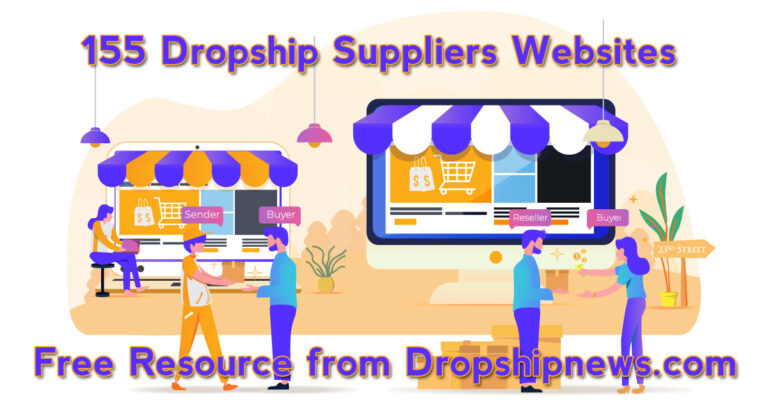Is Dropshipping Coffee Profitable

Is Dropshipping Coffee Profitable in 2024?
Yes, dropshipping coffee can be a profitable venture in today’s market. As the demand for specialty coffee products continues to rise, dropshipping offers entrepreneurs an opportunity to enter the industry without significant upfront investment in inventory or storage facilities.
This article will explore the rise of dropshipping in the coffee industry, the pros and cons of dropshipping coffee products, navigating the logistics of dropshipping coffee, effective marketing strategies, understanding profit margins, and success stories of dropshipping coffee businesses.
The Rise of Dropshipping in the Coffee Industry
The coffee industry has seen a significant shift towards e-commerce, with consumers increasingly turning to online platforms to purchase their favorite coffee products. This shift has paved the way for dropshipping to flourish within the industry.
Dropshipping coffee allows entrepreneurs to partner with suppliers or roasters, offering a diverse range of coffee beans, ground coffee, and related products without the need to manage inventory or handle shipping logistics.
This flexibility has contributed to the rapid rise of dropshipping in the coffee sector, enabling entrepreneurs to focus on building their brand and customer base without the traditional constraints of inventory management.
The Influence of E-Commerce on Coffee Consumption
E-commerce platforms have revolutionized the way consumers access and purchase coffee products. With the convenience of online shopping and the ability to explore a wide array of coffee options, consumers are increasingly drawn to the diverse offerings available through e-commerce channels.
This shift in consumer behavior has created a conducive environment for dropshipping coffee businesses to thrive, providing access to a broad customer base and the potential for substantial growth.

Leveraging Specialty Coffee Trends
The surge in demand for specialty and artisanal coffee has further fueled the rise of dropshipping in the coffee industry. Consumers are increasingly seeking unique and high-quality coffee experiences, driving the need for diverse and specialized coffee offerings. Dropshipping enables entrepreneurs to curate a distinct selection of coffee products, catering to the evolving preferences of coffee enthusiasts and capitalizing on the trend towards premium, ethically sourced, and sustainable coffee options.
Pros and Cons of Dropshipping Coffee Products
Before delving into the world of dropshipping coffee, it’s essential to weigh the advantages and drawbacks of this business model.
Pros of Dropshipping Coffee
Low Initial Investment
One of the primary advantages of dropshipping coffee is the minimal upfront investment required. Entrepreneurs can launch their coffee business with minimal capital, as they are not burdened with the costs associated with maintaining inventory and storage facilities.
Flexibility and Scalability
Dropshipping offers unparalleled flexibility, allowing entrepreneurs to scale their operations without the constraints of inventory management. This scalability enables businesses to adapt to fluctuating demand and expand their product offerings with ease.
Diverse Product Range
By partnering with multiple suppliers or roasters, dropshipping coffee businesses can offer a diverse range of coffee products without the limitations of a single inventory source. This versatility allows entrepreneurs to cater to various consumer preferences and trends.
Cons of Dropshipping Coffee
Quality Control Challenges
Maintaining consistent quality control can pose a challenge in dropshipping, as entrepreneurs rely on suppliers to uphold product quality and freshness. Ensuring a seamless and satisfactory coffee experience for customers requires meticulous supplier management and quality assurance protocols.
Shipping and Delivery Variables
The reliance on third-party logistics introduces complexities in managing shipping times, order fulfillment, and potential issues such as product damage during transit. Navigating these variables demands rigorous attention to detail and strong partnerships with reliable shipping providers.
| Pros of Dropshipping Coffee | Cons of Dropshipping Coffee |
|---|---|
| Low Initial Investment | Quality Control Challenges |
| Flexibility and Scalability | Shipping and Delivery Variables |
| Diverse Product Range |
Navigating the Logistics of Dropshipping Coffee
Successfully navigating the logistics of dropshipping coffee involves establishing robust partnerships with reputable coffee suppliers and implementing efficient shipping and fulfillment processes.
Partnering with Reliable Coffee Suppliers
Selecting trustworthy and reputable coffee suppliers is paramount to the success of a dropshipping coffee business. Entrepreneurs should conduct thorough due diligence to identify suppliers with a proven track record of quality, reliability, and ethical sourcing practices. Establishing strong relationships with suppliers is crucial for maintaining consistent product availability and upholding quality standards.

Streamlining Shipping and Fulfillment Processes
Efficient shipping and fulfillment processes are essential in ensuring a seamless customer experience. Dropshipping coffee businesses must collaborate with reliable shipping partners to minimize transit times, mitigate the risk of product damage, and provide transparent order tracking for customers. Implementing streamlined fulfillment workflows and proactive communication with shipping partners is integral to optimizing the logistics of dropshipping coffee products.
Marketing Strategies for Dropshipping Coffee Online
Effective marketing strategies play a pivotal role in driving the success of dropshipping coffee businesses, amplifying brand visibility, and engaging with target audiences.
Building a Compelling Brand Story
Crafting a compelling brand narrative that resonates with consumers is vital for establishing a strong brand identity in the competitive coffee market. Entrepreneurs should articulate their brand’s unique values, sourcing philosophy, and commitment to quality to forge meaningful connections with coffee enthusiasts.
Leveraging Content Marketing and Social Media
Content marketing and social media platforms offer valuable avenues for showcasing the allure of coffee products, sharing engaging coffee-related content, and connecting with a community of coffee aficionados. From visually captivating coffee photography to educational blog posts on brewing techniques, leveraging content marketing and social media can foster brand loyalty and customer engagement.
Harnessing Influencer Partnerships
Collaborating with influencers and coffee enthusiasts who align with the brand’s ethos can amplify reach and credibility within the coffee community. Strategic influencer partnerships can elevate brand visibility, foster authentic endorsements, and cultivate a loyal following of coffee connoisseurs.
Understanding Profit Margins in Dropshipping Coffee
Comprehending the dynamics of profit margins is fundamental for sustaining a profitable dropshipping coffee business. Calculating and optimizing profit margins involves meticulous attention to costs, pricing strategies, and revenue streams.
Cost Analysis and Pricing Strategies
Conducting a comprehensive cost analysis, encompassing product costs, shipping fees, and operational expenses, is essential for determining competitive yet sustainable pricing strategies. Entrepreneurs must strike a balance between offering competitive prices and safeguarding healthy profit margins to ensure the long-term viability of their dropshipping coffee venture.
Revenue Diversification and Upselling Opportunities
Exploring opportunities to diversify revenue streams through complementary coffee accessories, subscription services, or curated coffee bundles can bolster overall profitability. Additionally, implementing strategic upselling tactics, such as offering premium coffee blends or limited-edition products, can enhance average order values and contribute to increased profitability.
Success Stories: Dropshipping Coffee Businesses
Examining success stories within the dropshipping coffee landscape provides valuable insights and inspiration for aspiring entrepreneurs looking to carve their niche in the industry.
Case Study: Brainwashed Coffee Co
Billy’s Brew: A Story of Passion and Perseverance in Coffee Dropshipping
In the quiet corners of a small town, amidst the uncertainty of a global pandemic, Billy, a dedicated teacher and coach, found himself at a crossroads. With the future of his coaching career hanging in the balance, Billy’s nights were consumed by a quest for a new path. It was during one of these late-night explorations that he stumbled upon a video about dropshipping. The concept intrigued him, but it was his love for coffee that truly sparked an idea.
Billy’s passion for coffee was more than just about the brew; it was about the community it fostered. He realized that in the world of recovery, where he had deep connections, coffee was more than a drink – it was a symbol of togetherness, a beacon of hope. This realization led to an epiphany: why not combine his love for coffee with his desire to support the recovery community?
With this vision, Billy embarked on a journey to create a unique coffee brand. He knew he had to stand out, so he focused on creating a brand that resonated with his target audience. He spent countless hours researching, learning about dropshipping, marketing, and the nuances of the coffee industry. His brand, woven with stories and a strong, relatable logo, began to take shape.
Billy’s approach was multifaceted. He leveraged Instagram, not just as a marketing tool, but as a platform to build a community. He connected with podcasts, sharing his story and the ethos of his brand. Each step was a learning curve, but Billy’s determination never wavered.
His efforts began to bear fruit. The recovery community embraced his brand, not just for the quality of the coffee, but for the message it carried. Billy’s brand became more than just a product; it was a part of people’s recovery journeys, a symbol of their resilience.
Billy’s story is not just about the success of a dropshipping business. It’s a tale of how passion, when combined with hard work and a deep understanding of one’s audience, can create something truly special. His journey reminds us that sometimes, the best business ideas are born from the things we deeply care about.
In conclusion, the rise of dropshipping coffee has opened new avenues for entrepreneurs to thrive in the dynamic coffee industry. By leveraging the benefits of dropshipping, implementing robust logistics strategies, and embracing innovative marketing approaches, aspiring coffee entrepreneurs can position themselves for success in this burgeoning market. With a deep understanding of profit margins and inspiration drawn from success stories, the potential for profitability in dropshipping coffee is indeed promising.






